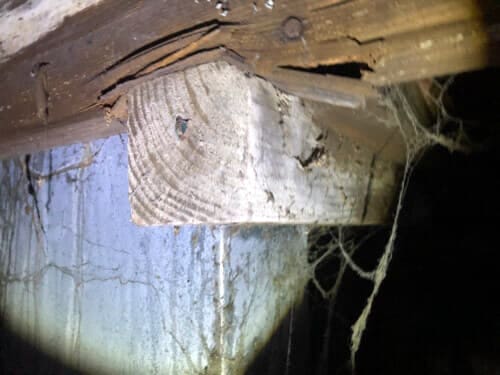
Maintenance and repairs are frustrating but necessary tasks that come with owning a home. It’s a hassle: arranging work schedules and juggling childcare so someone is home, trying to work from home despite the noise, and possibly dealing with a messy aftermath in your yard.
Once you accomplish all of the scheduling and get the work done, the hard part should be over. But then you get an invoice, and you discover the pricing isn’t what you expected. That is infuriating, and often that hit to the budget turns out to be the worst part.
Founded in 1996, Acculevel is a family-owned and operated company that specializes in foundation repair and waterproofing. Our goal is to help homeowners care for and maintain their homes in optimal condition, with fair and honest business practices. Most contractors in our industry are good people; but we believe an experience with one bad apple is one too many.
Because of this philosophy, we are going to review the various types of added expenses you may encounter. We’ll explain why we don’t need building permits, what they cost in the rare event we do need one, and how ethical contractors should approach you about additional costs.
The most common fee that small businesses have is a credit card processing fee. Acculevel does not pass on this expense to our customers, but there are many businesses that do. (My local mechanic is one of them.) This is also why many small shops have a minimum amount they allow you to charge.
In most instances, it’s a “pass-through” charge, meaning that the business only charges you what they are required to pay. They don’t add any profit to this; it’s literally the same amount they will turn around and pay the bank for processing. You can expect this amount to be 3%-5% of your bill.
Want to know more about Acculevel, and the services we provide? Join us on our YouTube Channel:
The literal definition of a surcharge, according to dictionary.com, is “an additional charge, tax, or cost.”
Surcharges are used to pass on additional costs to a customer, but are added to the bill separately from the quoted cost of the items sold. In retail, the common ones are shipping or handling fees that cover the expenses of delivering the goods to you. In shipping terms, the primary one is a fuel surcharge, to cover unexpected costs due to the ever-changing nature of oil prices.
Business practices for these can vary, and you should always ask if the quoted price is the total price after taxes and fees. At Acculevel, the pricing we give you with your estimate includes everything. And I do mean everything: materials, labor, travel- we even pay the sales tax ourselves, rather than add it to a customer’s bill.
Every city and county has its own ordinances and regulations. With so many variations, it would be unwise for us to say we are never required to file for a building permit. But it is uncommon. This is because we are not building new structures. Our helical piers stabilize existing foundations, our slabjacking lifts existing concrete, and our waterproofing systems repair basements and crawl spaces.
Building permits are normally only needed if you are, in fact, building something new on a property. Since our services are typically reinforcing, strengthening, or repairing what already exists, we don’t fall into that category. However, on any occasion we are required to file for one, we notify the customer of the added expense before it is added to the invoice. Alternatively, the homeowner can choose to apply for the permit themselves and pay the city/county directly.
On average, a building permit for altering an existing structure costs $50-100. If you are being charged more than this by a contractor, we strongly suggest that you contact your local government office and ask for a copy of the permit and its cost.
Excluding the seldom-needed building permit, Acculevel only revises your original estimate under two conditions.
Our goal is to provide homeowners with the information they need to make the best decisions for themselves and their homes. Everyone should be treated fairly and with respect, and deserves quality customer service.
If you need to hire a contractor, we encourage you to use our guide, Questions to Ask a Contractor. The article explains why we recommend these questions, provides Acculevel’s answers, and comes with a downloadable version you can use to interview any contractor. It does not only apply to foundation repairs- use it for hiring a roofer, builder, renovator, etc.
We also have in-depth guides to Foundation Repair and to Basement Waterproofing. These are available at no charge, and are meant to be used as references for homeowners. Bookmark them, read the sections that interest you, or take a crash course in the topic by reading the entire guide.
And our DIY Foundation Inspection Checklist should be performed twice a year. This free resource is based on our own 21 Point Inspection service, which we charge $500 for a 5 year plan. It clearly walks you through your home’s foundation, flooring system, water drainage, and property. Using this can help you catch potential issues early and address them before they escalate into expensive repairs.
[DISPLAY_ULTIMATE_SOCIAL_ICONS]